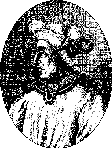|  |
Published 1690 |
Extent and End of Civil Government |
Paragraph #4
Political power, then, I take to be a right of making laws, with penalties of death, and consequently all less penalties for the regulating and preserving of property, and of employing the force of the community in the execution of such laws, and in the defence of the commonwealth from foreign injury, and all this only for the public good.
Paragraph #95
Men being, as has been said, by nature all free, equal, and independent, no one can be put out of this estate and subjected to the political power of another without his own consent, which is done by agreeing with other men, to join and unite into a community for their comfortable, safe, and peaceable living, one amongst another, in a secure enjoyment of their properties, and a greater security against any that are not of it. This any number of men may do, because it injures not the freedom of the rest; they are left, as they were, in the liberty of the state of Nature. When any number of men have so consented to make one community or government, they are thereby presently incorporated, and make one body politic, wherein the majority have a right to act and conclude the rest.
